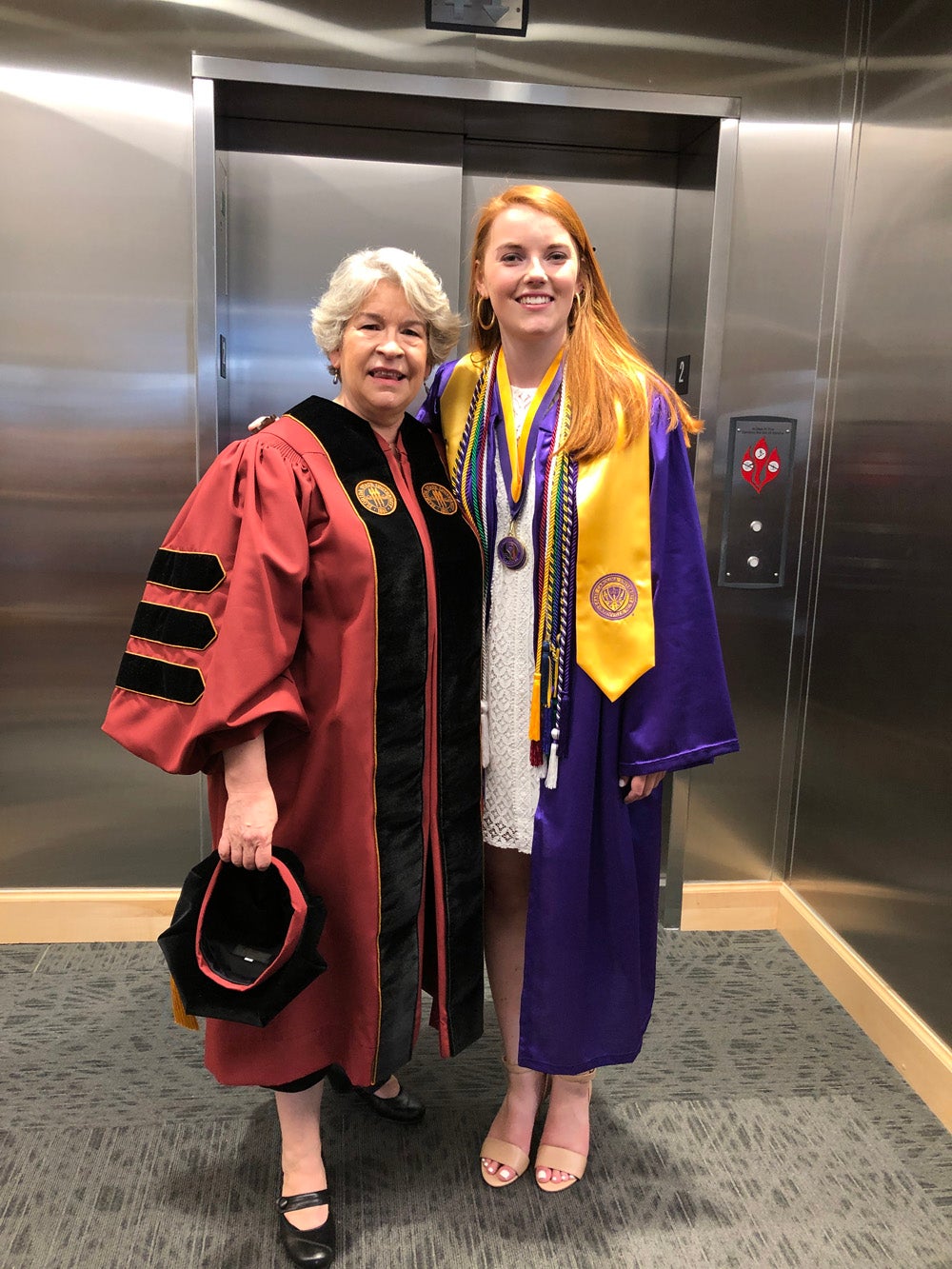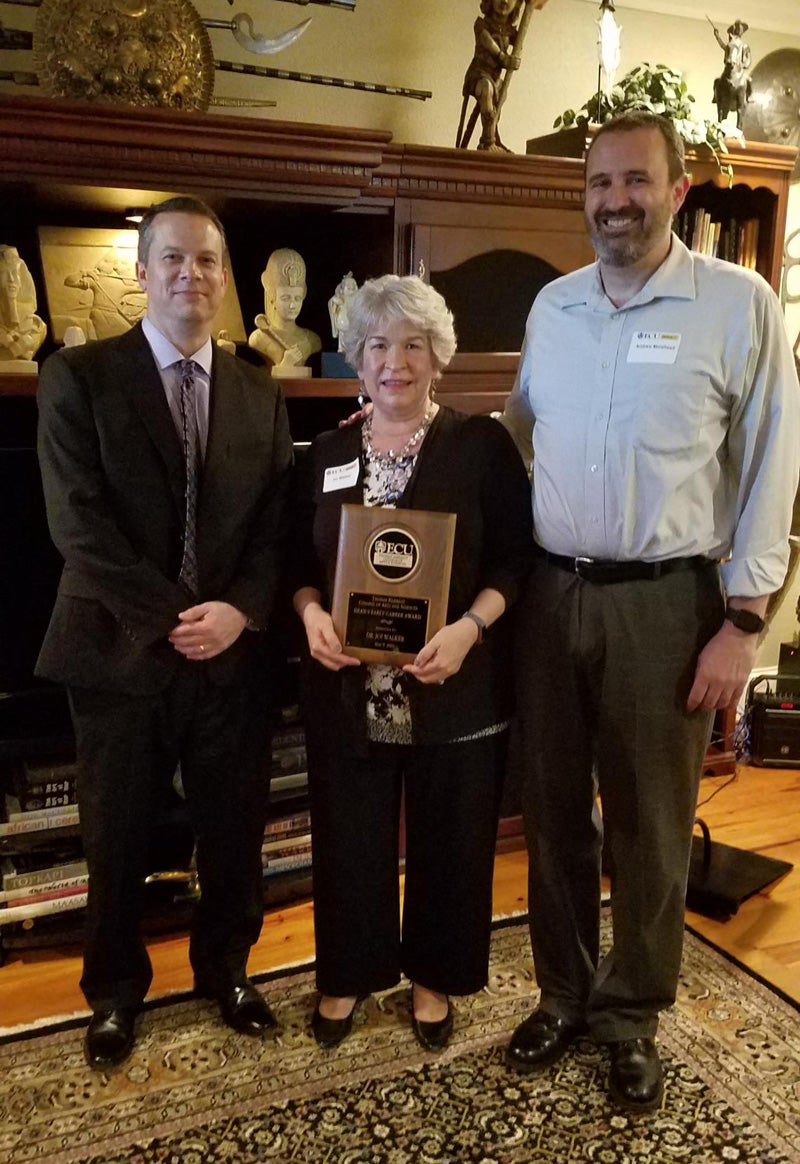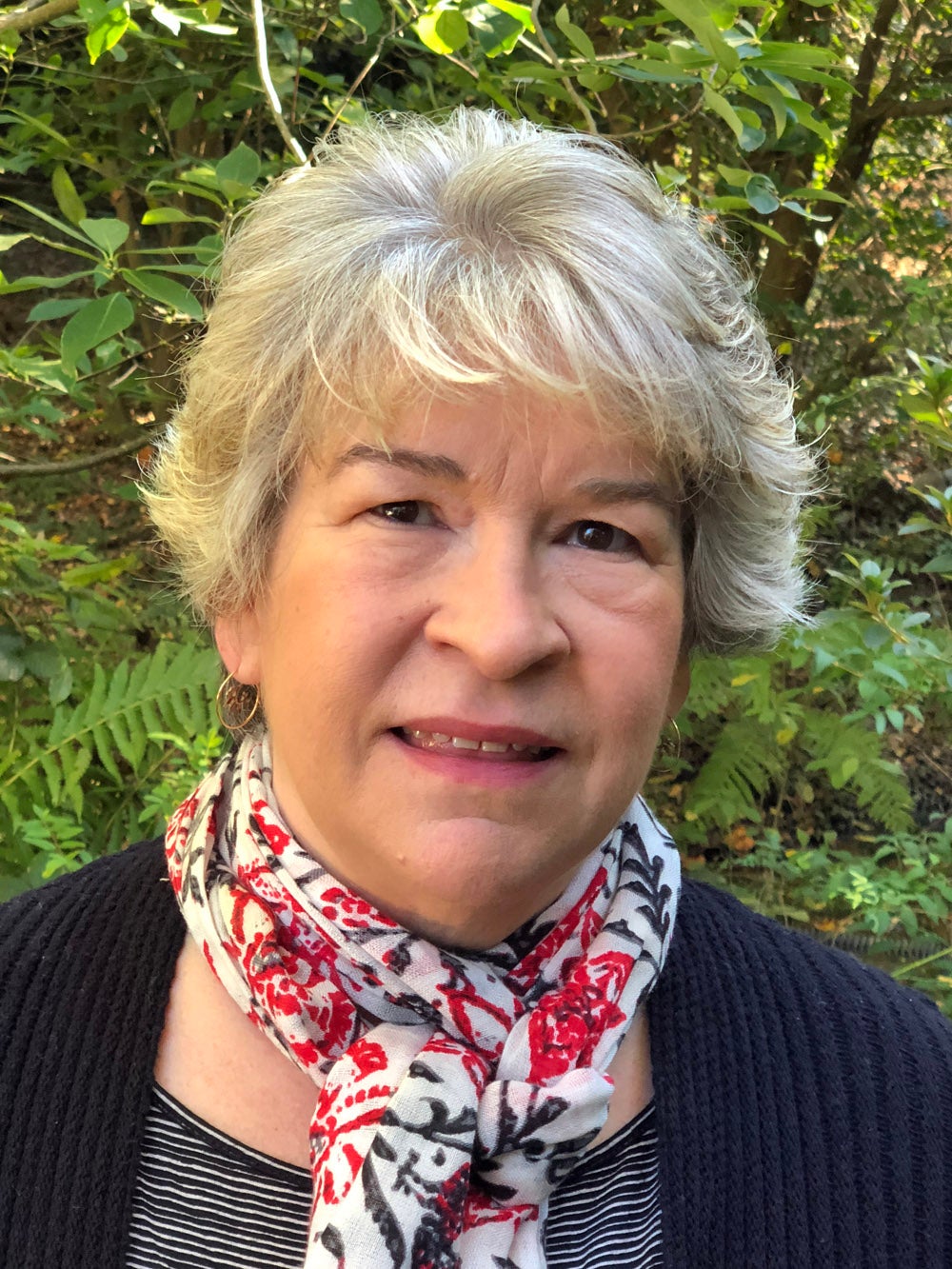Harriot College announces 2019 Dean’s Early Career Award recipient
East Carolina University’s Thomas Harriot College of Arts and Sciences has named Dr. Joi Walker, assistant professor of chemistry, as the recipient of the 2019 Dean’s Early Career Award. The announcement was made May 9 during a special reception hosted by Dean William M. Downs at the home of Charles Saunders, chair of the THCAS Dean’s Advancement Council.
“It is a great honor to be selected for the Dean’s Early Career Award,” Walker said. “Starting a new career was exciting and daunting, so to be recognized as having been successful by the dean is not only a validation of my work, but a great encouragement to continue.”
Established in 2015 through the generosity of the THCAS Dean’s Advancement Council, the award recognizes and rewards exceptional performance by tenure-track assistant professors. It represents the college’s breadth of faculty excellence in the humanities, social sciences, natural sciences and mathematics.
“The award’s primary focus is on the faculty member’s productivity in research and creative discovery, which must be judged to be of such high quality and impact that it exceeds expectations,” Downs said. “Outstanding performance in professional development must be complemented by demonstrated excellence in instructional effectiveness and service, and I am extremely pleased to say Dr. Walker exceeded these qualifications.”

Walker with 2019 graduating chemistry senior and Robert Wright Award recipient Meghan Lower, who served as Walker’s undergraduate researcher for three years. (Photo courtesy of Joi Walker)
Walker came to ECU in August 2015 and teaches courses in general and organic chemistry. She is one of four faculty members who make up the STEM Collaborative for Research in Education at ECU, which is a multidisciplinary team of scholars from departments in Harriot College and the College of Education.
Walker leads courses for undergraduate students working as ECU Learning Assistants, preparing them to work in introductory lab classes and to teach others how to study and learn science skills.
With a focus on chemical education, Walker researches ways to help students be more proficient in science and to increase the number and diversity of students earning STEM degrees. She conducts research on investigation design, data analysis, argumentation and writing in science laboratories.
“My current research is focused on transforming laboratory courses in order to prepare students for participation in science research. The first step of this process is through an NSF-funded project designed to provide an inclusive program for students across biology, chemistry and physics introductory laboratory courses. The project seeks to facilitate practice-focused transformation through a common laboratory structure, language and emphasis for instruction,” Walker said.

Walker was honored during a special reception at the home of Charles Saunders, THCAS Dean’s Advancement Council chair. Pictured (left to right) are Dean William M. Downs, Walker and Dr. Andrew Morehead, chair of the Department of Chemistry. (Photo by Debby Diffenbaugh)
With the assistance of National Science Foundation funding, Walker has led the implementation of a course-based research experience (CURE) with her colleagues and associate professors of chemistry Drs. William Allen and Anthony Kennedy. Students apply for a special CURE section of organic chemistry II laboratory from which they can continue the research in a CURE section of qualitative analysis the following semester.
“These courses have engaged 60 students in authentic research in the first two years of the project,” she said.
After completing the first year of data collection, Walker said her team has preliminary insight into cross-disciplinary impact with regard to student performance on practice-focused assessments, oral argumentation and positive trends in science identity.
“ECU students are eager for new opportunities to learn and to be active participants in their education. The faculty are much the same but from the other side: They are willing to try new methods of instruction, engage in conversation about change and consider alternatives to traditional methods,” Walker said. “So, I thank all the students, teaching assistants, instructors, faculty and administrators who believe in the promise of change.”
-by Lacey L. Gray, University Communications
